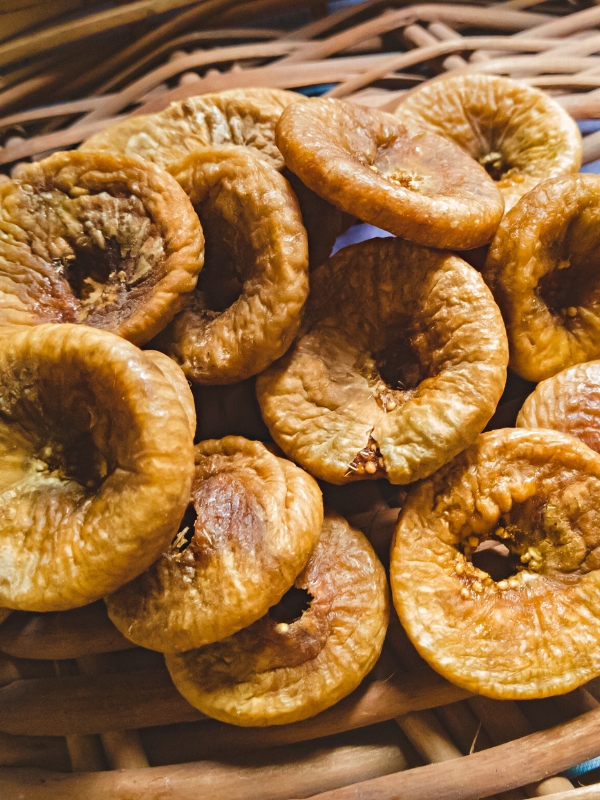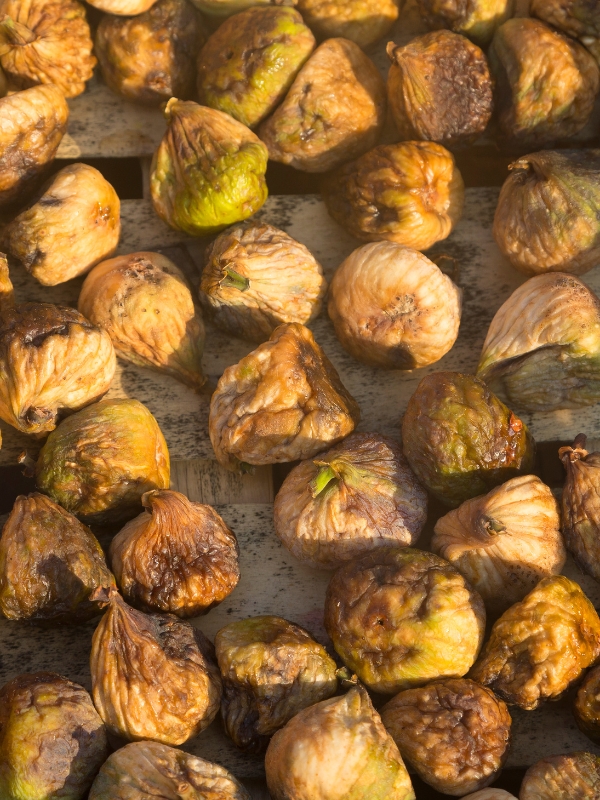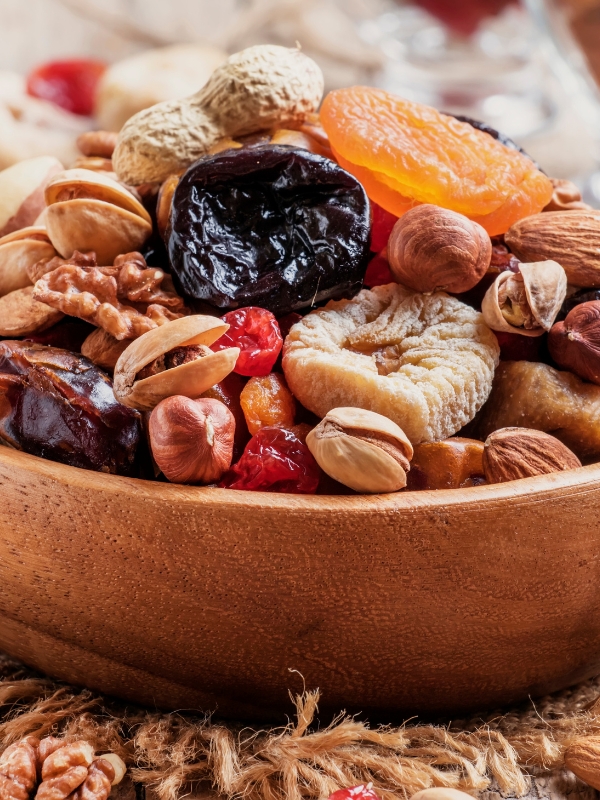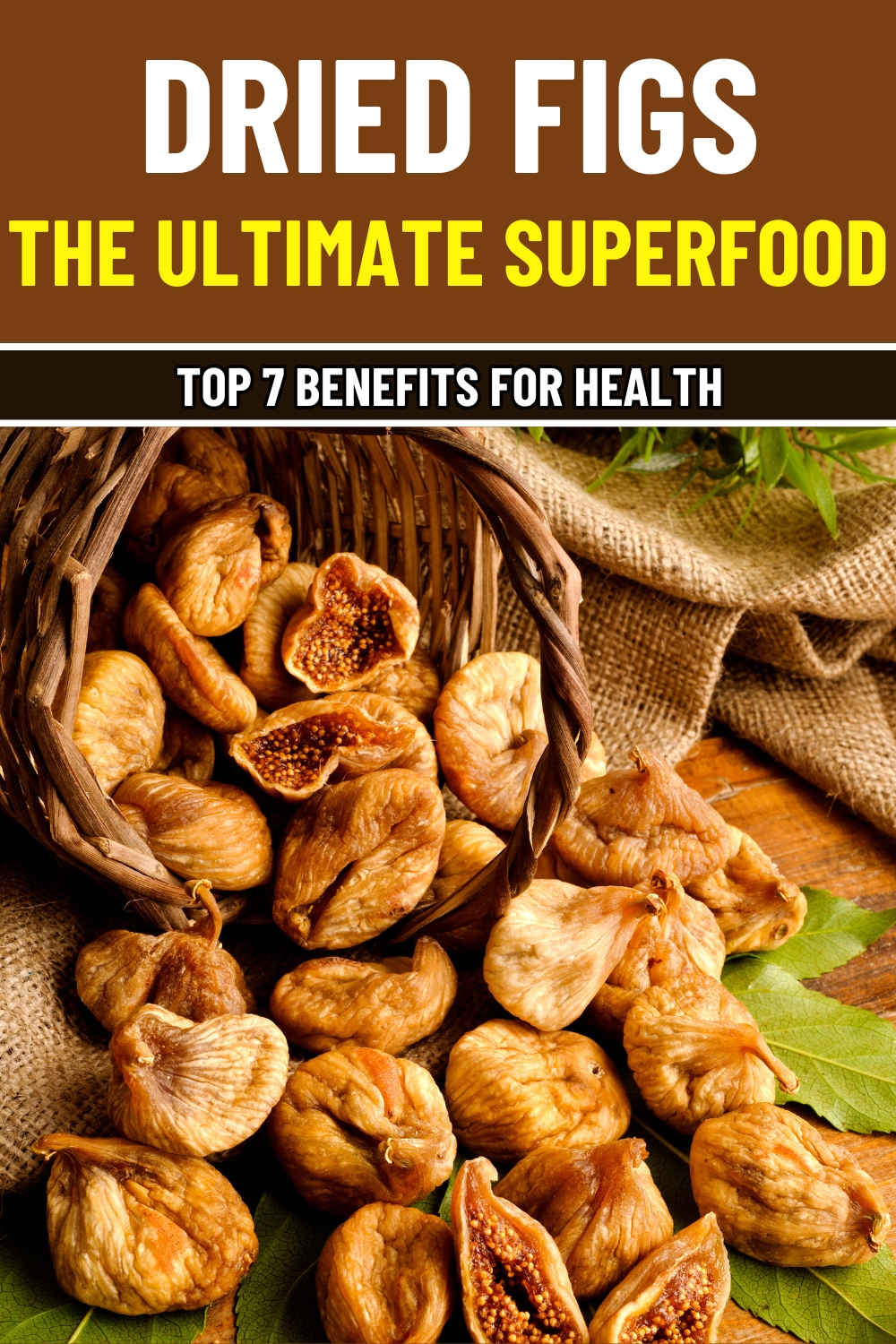Figs are not only a delicious treat but also a powerhouse of nutrition. Drying figs at home is a simple, rewarding process that lets you enjoy their natural sweetness all year round.
Packed with fiber, vitamins, and essential minerals, dried figs are an excellent snack or addition to your favorite recipes.
Here are the incredible health benefits of dried figs and the easiest and most effective methods to dry them at home.
#1. Supports Digestive Health
Dried figs are a fantastic source of dietary fiber, so they help regulate bowel movements, prevent constipation, and reduce symptoms of irritable bowel syndrome (IBS).
The natural prebiotics in figs also nourish beneficial gut bacteria, promoting a balanced microbiome.
A 2018 study in Food Chemistry highlighted that figs’ soluble and insoluble fibers work together to enhance gut health and improve overall digestion.
100 grams of dried figs contain approximately 9.8 grams of fiber, meeting nearly 39% of your daily recommended intake.

#2. Boosts Bone Health
Dried figs are rich in bone-building nutrients like calcium, magnesium, and phosphorus. These minerals work together to strengthen bones, improve density, and reduce the risk of osteoporosis, especially as we age.
They are a plant-based alternative for those who avoid dairy. The calcium content in dried figs (162 mg per 100 grams) makes them one of the highest non-dairy sources of this vital mineral, aiding in bone maintenance and repair.
Magnesium in dried figs (68 mg per 100 grams) supports calcium absorption and prevents bone loss.
#3. Enhances Heart Health
Figs are an excellent choice for heart health due to their potassium and antioxidant content. Potassium regulates blood pressure by balancing sodium levels, while antioxidants reduce oxidative stress, preventing arterial damage.
A study published in the Journal of Medicinal Food found that fig polyphenols help lower bad cholesterol (LDL) and reduce the risk of atherosclerosis.
With 680 mg of potassium per 100 grams, dried figs support cardiovascular health and muscle function.

#4. Provides Natural Energy
The natural sugars in dried figs, including glucose, fructose, and sucrose, provide a quick energy boost without the crash associated with processed snacks.
Their combination of sugars and nutrients makes them ideal for athletes or anyone needing sustained energy.
Dried figs paired with nuts create a balanced, energizing snack, perfect for a pre-workout boost or mid-afternoon pick-me-up.
#5. Improves Skin Health
Dried figs are rich in polyphenols, flavonoids, and vitamins like A, E, and K, which improve skin elasticity, reduce inflammation, and combat signs of aging. Their antioxidant properties help neutralize free radicals, promoting a clear and youthful complexion.
Moreover, studies in the Journal of Dermatological Science revealed that regular consumption of figs enhances skin hydration and reduces wrinkles caused by environmental stressors.

#6. Aids in Weight Management
The high fiber content in dried figs promotes satiety, reducing the likelihood of overeating.
Despite their natural sweetness, figs have a low glycemic index, making them suitable for weight-conscious individuals when consumed in moderation.
Substitute dried figs for sugar-laden snacks or desserts to satisfy sweet cravings healthily.
#7. Supports Reproductive Health
Dried figs are historically known as a fertility booster due to their high iron content, which supports red blood cell production and improves circulation.
Vitamin K aids in blood clotting and regulates hormonal balance, particularly in women.

Easiest and Best Ways to Dry Figs at Home
1. Sun Drying
Sun drying is a traditional, hands-on method with rich results. Start by washing ripe figs and patting them dry. Slice them in half for faster drying, or leave them whole for a chewier texture.
Arrange the figs on a tray lined with a clean cloth or mesh, ensuring they don’t overlap. Cover with a net to protect from insects and place in a sunny, ventilated spot.
Turn the figs daily and bring the tray indoors at night to avoid moisture from dew. After 3–5 days, the figs should be leathery and pliable. This method is ideal for those who enjoy a natural approach.
2. Oven Drying
Preheat your oven to 50–60°C (120–140°F). Wash, dry, and slice the figs in half, then arrange them on a parchment-lined baking sheet and cut side up. Place the tray in the oven and leave the door slightly ajar to let moisture escape.
Rotate the tray every 2–3 hours for even drying. The process takes 8–12 hours, depending on the figs’ size and moisture content. Allow the figs to cool completely before storing them in an airtight container.
3. Dehydrator Method
A dehydrator is the most efficient way to dry figs, especially for large batches.
Wash and slice the figs, then place them on dehydrator trays with space between each piece. Set the temperature to 55–60°C (130–140°F) and dry for 8–12 hours, checking periodically.
Once dried, let the figs cool before storing. This method ensures even drying with minimal effort, making it ideal for regular use.

Creative Uses for Dried Figs
- Healthy snacks: Enjoy dried figs on their own or pair them with cheese, nuts, or yogurt for a quick, nutrient-rich snack.
- Homemade energy bars: Blend dried figs with oats, nuts, and seeds to create no-bake energy bars or balls. This makes a perfect on-the-go snack.
- Infused water or tea: Steep dried figs in water or tea to create a naturally sweet, flavorful drink rich in nutrients.
- Fig paste or jam: Puree dried figs with a bit of water to create a paste or jam that can be used as a spread for toast or an ingredient in sauces.
- Salad toppers: Slice dried figs and sprinkle them over green salads, grain bowls, or roasted vegetables for a burst of sweetness and texture.

Cautions and Precautions
Due to their concentrated sugar content, consume dried figs in moderation to avoid blood sugar spikes or digestive discomfort.
Some individuals may be allergic to figs or latex on the skin.
Disclaimer
This article is for informational purposes only and does not replace professional medical advice.
Always consult a healthcare provider for personalized guidance, especially if you have dietary restrictions or medical conditions.

7 Amazing Health Benefits of Dried Figs and Easiest Ways to Dry Them at Home
